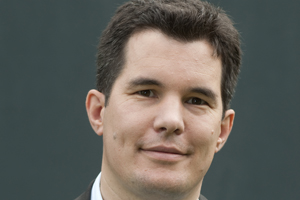EU sponsors research conducted at the German Center for Neurodegenerative Diseases
Bonn, December 14, 2016. Bonn-based neuroscientist Prof. Stefan Remy (41) will receive the “Consolidator Grant” from the European Research Council (ERC) worth EUR 1.8 million. The Grant is a special award because, apart from the high funding sum, the ERC's aim is to fund top-notch scientists with ground-breaking ideas. Stefan Remy plans to use the prize money on decoding single neuron function during behavior in mice. The objective of the project is to understand the functions of entire brain regions by deciphering the principles of signal processing of the smallest computational units of the brain - the neurons – and connecting them to neuronal networks. Remy is a group leader at the German Center for Neurodegenerative Diseases (DZNE) with a chair at the University of Bonn.

